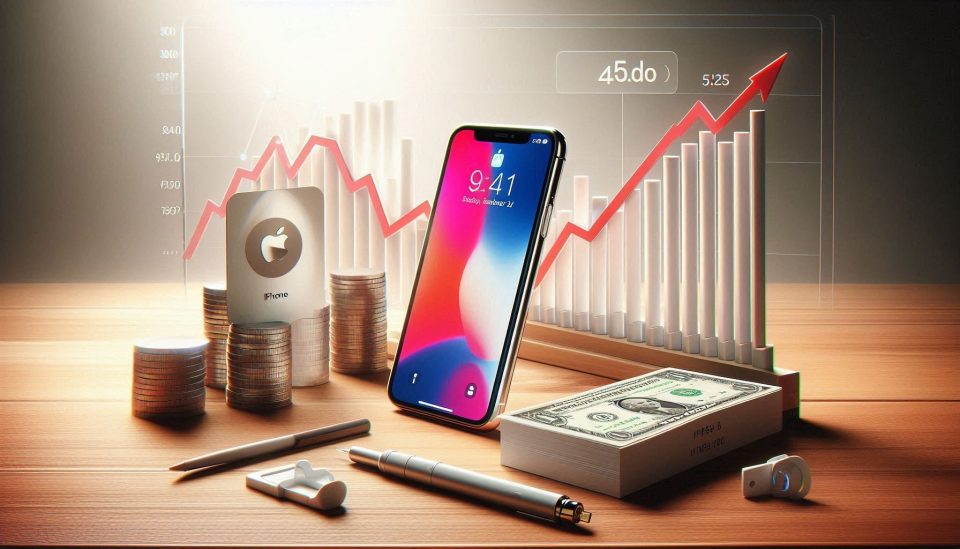Pre-Order Numbers Fall Short of Expectations
Apple Faces Investor Disappointment Over iPhone 16 Pro Sales – On Monday, Apple Inc. (AAPL) shares dropped after reports showed lower-than-expected demand for the iPhone 16 Pro. TF International Securities analyst Ming-Chi Kuo reported that pre-orders reached 37 million units since sales began on Friday. However, this figure represents a 13% decline compared to the iPhone 15 launch last year.
The iPhone 16 series, especially the Pro model, had high expectations. Many believed the new device would boost sales growth, but early figures sparked concerns about Apple’s market strength. Analysts were surprised by the drop in pre-orders, which impacted the stock market and led to a sharp fall in Apple’s share price.
Lack of Key Feature Impacts Sales
The absence of Apple Intelligence, a key feature, appears to have hurt demand. This AI-driven technology was expected to be a major selling point for the iPhone 16 Pro. Many anticipated Apple Intelligence would enhance the user experience through smarter, more intuitive interactions.
However, Apple did not release this feature with the iPhone 16. This left potential buyers disappointed. Kuo noted that Apple Intelligence was missing and linked it to lower demand. The timing couldn’t have been worse for Apple, which has promoted itself as a leader in AI. Many consumers may have delayed their purchases or chosen other devices.
Shares Slump, Investors Disappointed
Apple’s stock fell by 3% on Monday as a result. This wiped out some of its earlier gains. Year-to-date, Apple has now gained around 12%, which is below the Nasdaq 100 Index’s 15% advance.
Investors had expected the iPhone 16 launch to boost demand, especially with the addition of AI features. However, the lack of groundbreaking innovations left both consumers and investors underwhelmed. Although Apple had seen strong stock growth earlier this year, the disappointing sales figures have tempered enthusiasm.
Holiday Demand Concerns
The weak pre-order numbers have sparked fears about the holiday season. Typically, the holidays are a critical time for Apple as consumers make big-ticket purchases, including iPhones. However, the low demand for the iPhone 16 Pro has raised doubts about Apple’s ability to meet its sales targets.
Matthew Maley, chief market strategist at Miller Tabak + Co., expressed concern about the potential impact on Apple’s stock. He warned that the risk of a significant drop in Apple shares has “risen in a material way.” His caution reflects a broader concern among investors, particularly as Apple’s position in the smartphone market faces pressure.
Apple Faces Investor Disappointment Over iPhone 16 Pro Sales – Context and History
Apple has long dominated the smartphone industry. The iPhone consistently generates significant revenue, playing a crucial role in Apple’s success.
However, in recent years, competition has intensified, particularly from Android-based devices like Samsung’s Galaxy series. These rivals offer high-quality alternatives and continue to attract consumers. While Apple remains a leader in the premium smartphone market, it now faces more pressure to innovate and differentiate its products.
 The iPhone 16 was expected to be a game-changer. Many industry experts believed it would include major features that could help Apple stand out from its competitors. However, concerns surfaced that incremental upgrades might not drive substantial growth. The weak pre-order numbers have confirmed these fears.
The iPhone 16 was expected to be a game-changer. Many industry experts believed it would include major features that could help Apple stand out from its competitors. However, concerns surfaced that incremental upgrades might not drive substantial growth. The weak pre-order numbers have confirmed these fears.
Apple Faces Investor Disappointment Over iPhone 16 Pro Sales : Long-Term Implications for Apple
The disappointing iPhone 16 Pro sales have already impacted Apple’s stock and raised questions about its future. The absence of Apple Intelligence played a major role in the lackluster demand. Investors are now questioning how this will affect Apple’s revenue and earnings.
As the holiday season approaches, Apple must prove it can still deliver innovative products that capture consumer interest. The next few months will be critical in determining whether Apple can overcome this early setback and maintain its dominance in the competitive smartphone market.
Source – Bloomberg
Charts by Trading View

